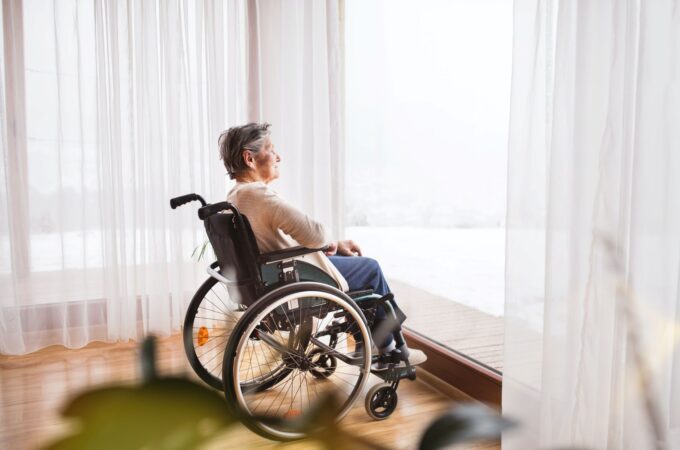Mobility and being able to move independently is a crucial lifestyle planning factor people often overlook. As families are out enjoying the summer weather and travelling again, we wish more people understood that being able-bodied[1] and independently mobile is a temporary state. Life happens – a car accident or healthcare crisis can instantly change your ability to move and function independently.
In estate and lifestyle planning, the focus is often on dementia as a critical factor in triggering lifestyle decisions. As we age, most people think about dementia and losing their ability to make important financial or medical decisions. Diminished capacity is often the breakpoint where families get involved in assisting with caregiving and helping to make lifestyle and accommodation changes.
We would suggest that mobility is also critical in triggering significant lifestyle planning issues. In some ways, the factors determining mobility are more concrete and tangible, and they can have a severe and sometimes immediate impact on a person’s life and planning horizon. And to complicate matters further, chronic mobility issues are often associated with pain control, surgical options, and overall health issues, including mental health.
Over the past months, we have had reminders that mobility is a critical factor in lifestyle planning [2].
- A newly retired woman in her early 60s was on her daily run in her neighbourhood park last winter. She slipped on black ice, fell, and fractured her neck, becoming a quadriplegic. She has just been discharged home from a rehabilitation hospital and is learning to navigate the complexities of living in her new world.
- A referral from a trust company executive requested assistance for a 90-year-old lady who has had repeated compression fractures in her spine due to arthritis. She can no longer live alone in her multistorey house and will require a new plan for living accommodations and support once she is discharged from the hospital in a few weeks.
- A couple in their early 70s, still actively working as consultants in their respective fields, requested assistance creating a smart ageing plan with predicted costs. With significant arthritis in her knees and feet, the wife has difficulty going up and down stairs in their 4-level home. Their fundamental planning question – do they stay in their house or move?
The realities of arthritis and its impact on mobility are stark. Arthritis is an umbrella term describing a group of over one hundred diseases characterized by inflammation in the joints and other areas. There are two broad categories – osteoarthritis and inflammatory arthritis. As Canada’s most common chronic disease, arthritis affects all ages and stages, and there is no cure. Six million people in Canada have been diagnosed with arthritis, including one in two people 65 years and older[3]. With an aging population, the incidence of arthritis is rising.
So how do we incorporate mobility as a key factor in lifestyle planning, especially as we age?
A complete medical assessment and a definitive diagnosis and prognosis for any chronic disease, such as arthritis, is the first step. The type of arthritis or inflammatory disease will significantly impact prognosis and establishing guiding timelines regarding future mobility and function.
Secondly, exploring their wants, needs, and preferences for various stages of ability and mobility is helpful within the context of the person’s assessment. Using scenarios can be valuable in discussing what type of support they would like or where they would consider living under certain circumstances and why.
Lastly, lifestyle planning must consider mobility as a key breakpoint for increased support impacting many aspects of care and financial planning, including caregiving support, accommodation and housing, medication administration, mobility aids, etc.
Life happens. Being able-bodied and mobile is a temporary state for all of us. We all must remember that at some point in our lives, we will experience a lack of mobility and its resulting challenges.
[1] Use of the term able-bodied to mean without visual disabilities.
[2] Circumstances have been altered for illustration.
[3] Truth About Arthritis from Arthritis.ca.


0 Comments